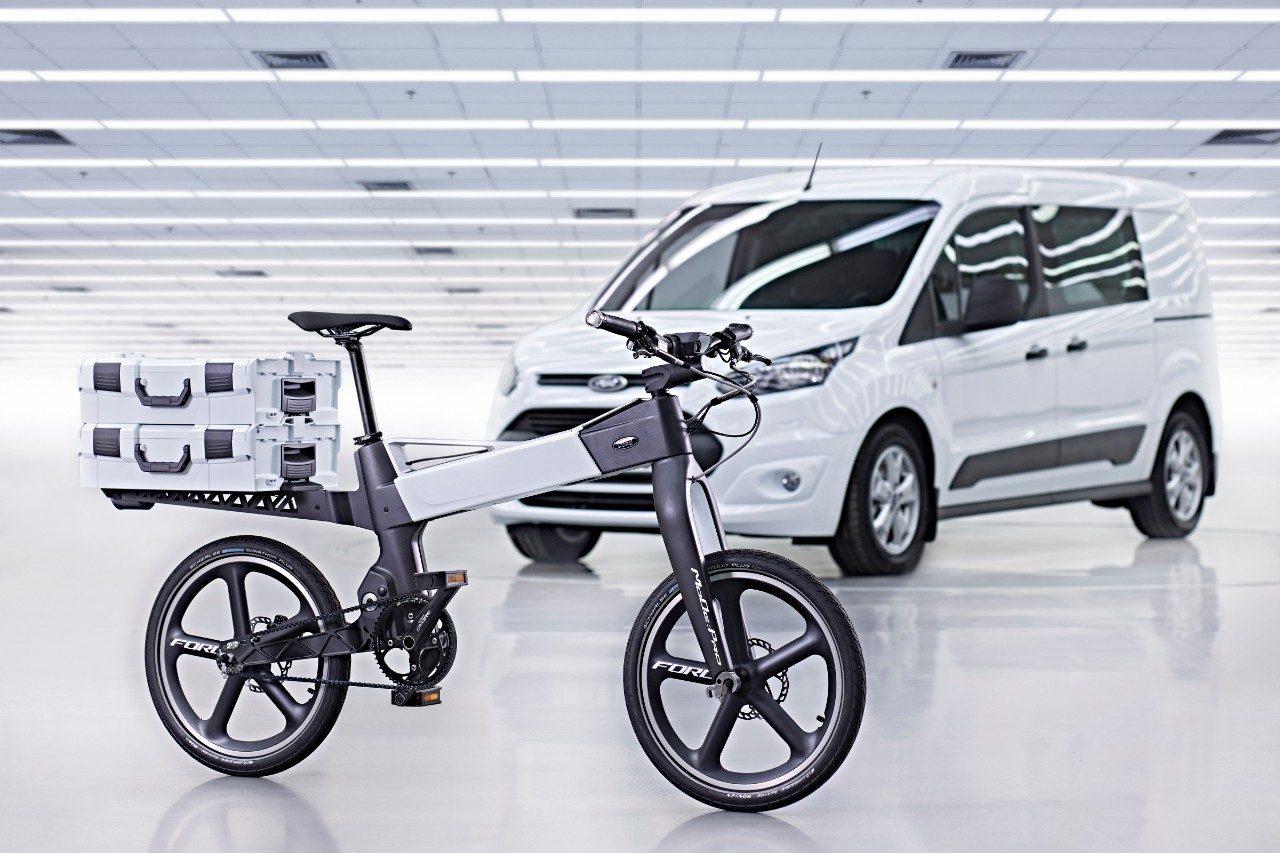
The 2015 Mobile World Congress, which kicked off yesterday, has already dropped a few bombshells. The impending breakup of Google+, Ikea's new wireless charging lamp displays and the (presumably) must-have facial recognition-blocking glasses from AVG are all the talk at the moment. Oh, and let's not forget Twitter's tiff with ISIS, which has threatened Twitter's employees for blocking its account.
But few gizmos seem as user-friendly as Ford's two e-bike prototypes, which are designed to almost read the minds of their riders. After years of testing, Ford on Monday unveiled the MoDe:Me and the MoDe:Pro, both of which are designed to work with the Apple iPhone6. The Me version is designed for the bike commuter, while the Pro is for couriers and others who use their bikes for work and need carrying capacity.
But the real highlight of the MoDe series is the bikes' adaptability to multi-source transport. Like the MUVe scooter in Israel, the e-bikes are designed to be foldable and to be usable for trips that require more than one mode of travel. A 9-hour battery allows for extended travel time between charging sessions. Its 200-amp motor allows for a pedal-free mode, which has a maximum speed of 25 miles per hour.
The bikes were announced as part of Ford's Handle on Mobility experiment, which the company said is part of a broader plan to "help change the way the world moves through innovation in connectivity, mobility, autonomous vehicles, customer experience and big data." Improved customer experience, flexible models that are more adaptable to shipping and "social collaboration" are all at the heart of this effort, Ford said.
"Changing the way we think, collaborate and behave is essential to ensuring freedom of movement of both people and economies,” said Barb Samardzich, who serves as the chief operating officer for Ford in Europe.
Both versions of the bike can be programmed meet the needs of route and type of travel. For example: Commuters in Bellevue, Washington, who travel regularly to downtown Seattle can program the bike to get it to the nearest bus by either the shortest or least grueling route. The handle bars vibrate when it is time to make a turn, and the bike can "sense" overtaking vehicles and alert the rider of risks.
Riders can also take a break with a 'no sweat' feature, which allows the bike to take over some of the pedaling according to heart rate.
These features are also designed to make commercial cycling easier by making biking and navigation in heavy traffic safer and less strenuous, said Ken Washington, vice president of Ford Research and Advanced Engineering.
“Being able to seamlessly move between cars, buses, trains and e-bikes and react to changing traffic situations can make a big difference both for commuters and for those delivering goods, services and healthcare,” Washington said.
Ford also unveiled its open-source InfoCycle sensor package, which sits on the handle bars and is designed to gather data about how bikes are used in urban settings.
"The project has been designed to enhance understanding of the biking ecosystem and to improve safety for cyclists, as well as exploring improved mapping, smart journey planning and community-based services," said the company. The sensor gathers information about user experiences such as speed and acceleration, climate, light, and altitude.
Ford hasn't said if or when the bikes would be released to the general market. So far, its two prototypes have benefited from employee input, as well as the expertise of bike manufacturer Dahon, known for its folding bikes.
The company's next step, it seems, is to gauge the reaction of its potential consumer base. Given the prominence of cycling in European countries like Sweden, France and Denmark, it's pretty likely that smart bikes will be a big hit in the EU. Whether we're ready for such a concept here is probably something Ford is still trying to figure out.
Images: Ford Motor Co.
Jan Lee is a former news editor and award-winning editorial writer whose non-fiction and fiction have been published in the U.S., Canada, Mexico, the U.K. and Australia. Her articles and posts can be found on TriplePundit, JustMeans, and her blog, The Multicultural Jew, as well as other publications. She currently splits her residence between the city of Vancouver, British Columbia and the rural farmlands of Idaho.














